Just as a recap, understand that out of the Ten Principles of Preparedness, in order of prioritization, Fuel Preparedness falls into position number 6. Understand that when I say “fuel” I’m referring to any type of energy/power which makes our life around us “go” whether that is the lights, automobiles, refrigerator, or even the water heater. As it’s in position #6, this means that there are 5 other aspects of Preparedness needs which will confront us before we are faced with the challenges of fuel. That’s not to say that we won’t be faced with this reality speedily. That which fuels our life is vital for our health, sanitation, comfort, safety, water, food,
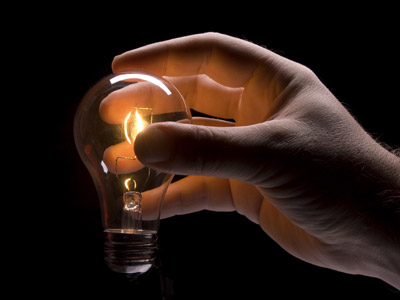 communication and so much else. Once again, this is a Principle which is vast in its impact on our life. As such, preparing for a life without the conveniences we presently enjoy can be a daunting task. So that best way I have used to be properly prepared in this aspect is to pay attention to my everyday needs and usage. (Clearly, not exactly easy when one is an airhead.) I consistently ask myself, “If I didn’t have any power, or gas, etc. how would I perform this particular task?” For example, I was making my yummy bread with my Bosch mixer. I love my Bosch. It allows me to make my bread from start to finish in less than an hour. So when it occurred to me that I may not always have such a luxury, I was highly motivated to figure out a solution. (I did by the way, thanks to the hand crank attachment that the Bosch mixers have.) Anyway, this is my routine. I take on the seemingly monumental task of replacing the convenience of fuel and power in pieces, one bite at a time. Practice, Practice, Practice One of the experiments I suggest that folks try in their homes is the 48 hour “lights out” experiment. This is when you and your family commit to going an entire 48 hours with no other light sources other than the alternative ones you’re planning on using in a long-term “lights out” scenario. Mind you, I’m not suggesting that you go without electricity all together for this experiment. Just the
communication and so much else. Once again, this is a Principle which is vast in its impact on our life. As such, preparing for a life without the conveniences we presently enjoy can be a daunting task. So that best way I have used to be properly prepared in this aspect is to pay attention to my everyday needs and usage. (Clearly, not exactly easy when one is an airhead.) I consistently ask myself, “If I didn’t have any power, or gas, etc. how would I perform this particular task?” For example, I was making my yummy bread with my Bosch mixer. I love my Bosch. It allows me to make my bread from start to finish in less than an hour. So when it occurred to me that I may not always have such a luxury, I was highly motivated to figure out a solution. (I did by the way, thanks to the hand crank attachment that the Bosch mixers have.) Anyway, this is my routine. I take on the seemingly monumental task of replacing the convenience of fuel and power in pieces, one bite at a time. Practice, Practice, Practice One of the experiments I suggest that folks try in their homes is the 48 hour “lights out” experiment. This is when you and your family commit to going an entire 48 hours with no other light sources other than the alternative ones you’re planning on using in a long-term “lights out” scenario. Mind you, I’m not suggesting that you go without electricity all together for this experiment. Just the
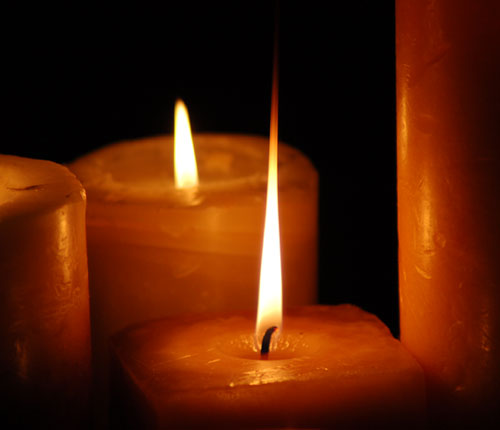 lighting. There are a couple of reasons why I suggest this practice. 1) It will show you whether or not the lighting you’ve planned on using is sufficient. I’ve found far too many times that my lighting choices have been woefully inadequate for lighting that I may have to use long-term. I actually discovered this by using my alternative lighting tools. 2) It will show you just how much you actually NEED to rely upon—especially if you’re trying to prepare for at least 12 months. One of the other things I learned is that I actually prefer to use tapered candles to light my lamps and candles instead of matches. I can easily light the tapered candle with one match rather than risk wasting match after match trying to light all of my tools. And 3) Familiarity eliminates stress. I’d much rather find out now that my lighting solutions are insufficient rather than when my life might rely upon it. Now’s the best time to discover that I need more ventilation than I expected for my intended room heater and to respond and plan accordingly now while I can still pay reasonable, non-emergency prices for the tools I need. Practice, practice, practice. Anything else is asking for unnecessary stress and who needs added stress when you’re obviously already having to endure one of life’s curveballs? Back-Ups for Your Back-UpsI’ve learned to not rely on only one source of fuel for my power needs. For example, I am prepared to cook with a solar oven, Korean cook stove, Volcano Stove, reflector oven, Dutch Oven, Rocket Stove, propane grill, and an open fire because I recognize that there
lighting. There are a couple of reasons why I suggest this practice. 1) It will show you whether or not the lighting you’ve planned on using is sufficient. I’ve found far too many times that my lighting choices have been woefully inadequate for lighting that I may have to use long-term. I actually discovered this by using my alternative lighting tools. 2) It will show you just how much you actually NEED to rely upon—especially if you’re trying to prepare for at least 12 months. One of the other things I learned is that I actually prefer to use tapered candles to light my lamps and candles instead of matches. I can easily light the tapered candle with one match rather than risk wasting match after match trying to light all of my tools. And 3) Familiarity eliminates stress. I’d much rather find out now that my lighting solutions are insufficient rather than when my life might rely upon it. Now’s the best time to discover that I need more ventilation than I expected for my intended room heater and to respond and plan accordingly now while I can still pay reasonable, non-emergency prices for the tools I need. Practice, practice, practice. Anything else is asking for unnecessary stress and who needs added stress when you’re obviously already having to endure one of life’s curveballs? Back-Ups for Your Back-UpsI’ve learned to not rely on only one source of fuel for my power needs. For example, I am prepared to cook with a solar oven, Korean cook stove, Volcano Stove, reflector oven, Dutch Oven, Rocket Stove, propane grill, and an open fire because I recognize that there
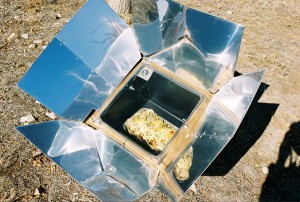 are a lot of scenarios that can play out which may negate one of the ways I intend to cook. Or I could find myself needing to feed dozens of people and one or two solar ovens on a cloudy day just won’t cut it. I realize that some of you reading this may feel a bit overwhelmed as you consider the dollars that might be involved. But it’s important that you recognize that I didn’t accumulate all of this overnight. I began with the most affordable means of cooking and then added to it all from there. The same strategy applies to lighting and heat. As a person who lives and breathes preparedness, I just can’t fathom putting all of my eggs in one basket in this regard.By the way, as is appropriate, I believe it’s vital that all of the family members become familiar with using the alternative power/fuel tools. Not only do you want to have back up tools but you want to have back-up people who are capable of using those tools. Transportation? So let’s pretend for a moment that there’s been a complete financial collapse and as such the dominoes have fallen and taken out the entire grid system in the U.S. There will be no pumping of fuel, so very little of your traditional automobile traveling, right? Can you
are a lot of scenarios that can play out which may negate one of the ways I intend to cook. Or I could find myself needing to feed dozens of people and one or two solar ovens on a cloudy day just won’t cut it. I realize that some of you reading this may feel a bit overwhelmed as you consider the dollars that might be involved. But it’s important that you recognize that I didn’t accumulate all of this overnight. I began with the most affordable means of cooking and then added to it all from there. The same strategy applies to lighting and heat. As a person who lives and breathes preparedness, I just can’t fathom putting all of my eggs in one basket in this regard.By the way, as is appropriate, I believe it’s vital that all of the family members become familiar with using the alternative power/fuel tools. Not only do you want to have back up tools but you want to have back-up people who are capable of using those tools. Transportation? So let’s pretend for a moment that there’s been a complete financial collapse and as such the dominoes have fallen and taken out the entire grid system in the U.S. There will be no pumping of fuel, so very little of your traditional automobile traveling, right? Can you
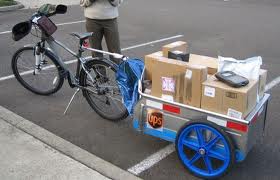 still envision a scenario in which alternative travel options might be beneficial? I sure can. I can conceptualize a scenario in which I’d be grateful for something as simple as a wheelbarrow, a Little Red Wagon, a quality bike with a storage basket on it. Heck, even roller blades might be helpful in such a scenario. Remember the PHYSICAL Fuel When planning on providing your family with alternative means for power and fuel, be sure to consider your own physical fuel! The most important fuel is your own physical capability. While it might be a bit easy now in the comfort of our 21st Century living to believe that you can meet your needs with some hard physical labor in the midst of a crisis, it’s a very dangerous thought process. Remember, that if you’re in a crisis scenario your mind and your body will already be taxed significantly. The last thing you want to do is to PLAN to tax your physical strength during such a time. Keep a Low Profile If you don’t already know, I’m NOT a fan of a traditional generator. Not one bit. They are too noisy, too smelly, too dangerous under crude circumstances (which is when they are most likely to be used) and they require yet another fuel source to operate. Granted, there are numerous instances in which a generator might be absolutely necessary. (more on that in a moment.) I’m also NOT a fan of
still envision a scenario in which alternative travel options might be beneficial? I sure can. I can conceptualize a scenario in which I’d be grateful for something as simple as a wheelbarrow, a Little Red Wagon, a quality bike with a storage basket on it. Heck, even roller blades might be helpful in such a scenario. Remember the PHYSICAL Fuel When planning on providing your family with alternative means for power and fuel, be sure to consider your own physical fuel! The most important fuel is your own physical capability. While it might be a bit easy now in the comfort of our 21st Century living to believe that you can meet your needs with some hard physical labor in the midst of a crisis, it’s a very dangerous thought process. Remember, that if you’re in a crisis scenario your mind and your body will already be taxed significantly. The last thing you want to do is to PLAN to tax your physical strength during such a time. Keep a Low Profile If you don’t already know, I’m NOT a fan of a traditional generator. Not one bit. They are too noisy, too smelly, too dangerous under crude circumstances (which is when they are most likely to be used) and they require yet another fuel source to operate. Granted, there are numerous instances in which a generator might be absolutely necessary. (more on that in a moment.) I’m also NOT a fan of
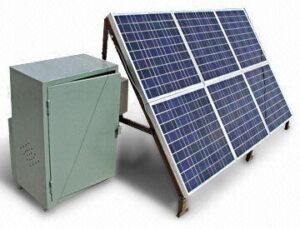 the expensive solar generators that you see at all of the Sports Expo’s and hear advertised on popular national talk shows. They are too expensive and you get too little power for your money, barely sufficient to run a couple of light bulbs. However, I am a firm believer in several “do-it-yourself” kinds of solar generator options. They are significantly less expensive, and you can get 4-10 times the power that the expensive, over-hyped models deliver. Such options will help with those “must have” scenarios such as refrigerating insulin. And guess what, I’m actually going to provide you with an article AND pictures to show you how to create something like this for yourself (this week). In the meantime, it’s important that you also understand that whatever your heating, lighting, cooking and traveling solutions are, you’ve GOT to make sure they are inconspicuous. The last thing you need to do in a crisis scenario is to draw attention to yourself. Lights and pleasant cooking smells emanating from your home might as well be a big bull’s-eye on your shelter that’s begging for some roaming loon to come and disrupt the safety of your home. So, when it comes to Fuel Preparedness, you’ve got to include solutions for how you’re going to maintain your privacy and safety. If you’re going to have the luxury of lights at night, then be sure you have your windows fully covered so as not to leak any light. If you’re going to cook something other than PB&Js on saltine crackers then you’ll want to be sure that you do so within the confines of a SAFE and SECURE dwelling. That can be managed either through the integrity of your structure, or through a trusted community watch program sufficient for your circumstances. Ultimately, when it comes to using your alternative fuel resources, you’ve got to consider your security as well. Obviously, you’ve got to plan on security measures that you’re comfortable with. And by the way, if you’re not comfortable and prepared to employ security measures on behalf of you and your family’s comfort and safety, then you better get on the stick and get there soon. In a world in which the social norms and standards have been compromised, the natural consequences will be a disruption to order and decorum. It’s simply unrealistic to expect to have one end of the stick without the other. Recap: Practice with your alternative fuel options. Have back-ups for your back-ups. Consider alternative transportation needs. PLAN now to conserve your own physical energy. And above all, keep a low profile. ‘Til next time—here’s to peace in your preparedness.
the expensive solar generators that you see at all of the Sports Expo’s and hear advertised on popular national talk shows. They are too expensive and you get too little power for your money, barely sufficient to run a couple of light bulbs. However, I am a firm believer in several “do-it-yourself” kinds of solar generator options. They are significantly less expensive, and you can get 4-10 times the power that the expensive, over-hyped models deliver. Such options will help with those “must have” scenarios such as refrigerating insulin. And guess what, I’m actually going to provide you with an article AND pictures to show you how to create something like this for yourself (this week). In the meantime, it’s important that you also understand that whatever your heating, lighting, cooking and traveling solutions are, you’ve GOT to make sure they are inconspicuous. The last thing you need to do in a crisis scenario is to draw attention to yourself. Lights and pleasant cooking smells emanating from your home might as well be a big bull’s-eye on your shelter that’s begging for some roaming loon to come and disrupt the safety of your home. So, when it comes to Fuel Preparedness, you’ve got to include solutions for how you’re going to maintain your privacy and safety. If you’re going to have the luxury of lights at night, then be sure you have your windows fully covered so as not to leak any light. If you’re going to cook something other than PB&Js on saltine crackers then you’ll want to be sure that you do so within the confines of a SAFE and SECURE dwelling. That can be managed either through the integrity of your structure, or through a trusted community watch program sufficient for your circumstances. Ultimately, when it comes to using your alternative fuel resources, you’ve got to consider your security as well. Obviously, you’ve got to plan on security measures that you’re comfortable with. And by the way, if you’re not comfortable and prepared to employ security measures on behalf of you and your family’s comfort and safety, then you better get on the stick and get there soon. In a world in which the social norms and standards have been compromised, the natural consequences will be a disruption to order and decorum. It’s simply unrealistic to expect to have one end of the stick without the other. Recap: Practice with your alternative fuel options. Have back-ups for your back-ups. Consider alternative transportation needs. PLAN now to conserve your own physical energy. And above all, keep a low profile. ‘Til next time—here’s to peace in your preparedness.
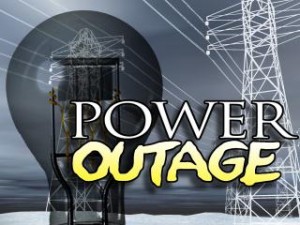
Leave a Reply